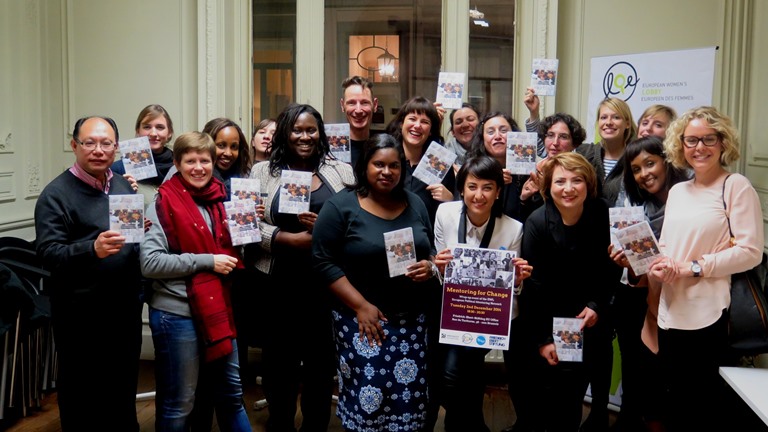[Brussels, 03 May 2012] As the European Union considers imposing binding quotas for women on companies’ boards, similar instruments should also be envisaged for media boards, argues Klaus Heeger in an article published on 02 May on EurActiv. Klaus Heeger is secretary-general of the European Confederation of Independent Trade Unions (CESI), a European umbrella organisation representing approximately 8 million employees. CESI is a European member organisation of the EWL and CESI’s FEMM committee President, Kirsten Lühmann, is a member of the EWL Board of Administration.
Women stereotypes: Time for a reflection within the media
“At a time when the European Union is hoping to increase participation of women in the labour market and is considering the implementation of binding quotas, involvement of the media into this discussion is surely needed.
The European Confederation of Independent Trade Union’s Committee on Women’s Rights and Gender Equality (FEMM) hence adopted a resolution on the image of women in the media, calling the media representatives for more sensitivity in this regard.
It has been widely recognised – women are chronically underrepresented in the newspapers, magazines, internet, TV and radio programmes. In addition, they tend to be pushed into stereotypical social roles which do not reflect reality. It is therefore somewhat inexcusable that only 20% of experts (according to the Global Media Monitoring Project 2010) contributing to overall output of the media are women.
Media professionals appear to mainly focus on what is presumably the audience’s expectations on women’s roles when setting out their programmes and casts, rather than to reflect the diversity of today’s women’s real socio-professional lives.
Decisions regarding media content and those persons appearing on set are thus powerful tools when it comes to determine the place awarded to women in society and the world of work. Initiatives which aim to raise awareness of the current deficits should hence be promoted.
Fair depiction of society and fair handling of media content, especially with regard to gender equality, is crucial for journalistic ethics and the overall quality of information provided. Improving the image of women in the media starts with raising a respective awareness amongst journalists, editors and all those who play a part in determining media programmes.
Furthermore, it seems rather odd that in times when journalism seems increasingly attractive to women, places occupied by women in decision-making positions within the various media remain extremely low.
Hence, when setting up editing teams and the way such teams deal with news contents, as well as when addressing the issue of representation and its impact on the public, these issues should be considered.
CESI’s FEMM committee President Kirsten Lühmann therefore demanded that – against the background of the recent initiatives regarding quotas for women in the companies’ boards – similar instruments are envisaged for the media boards.”


